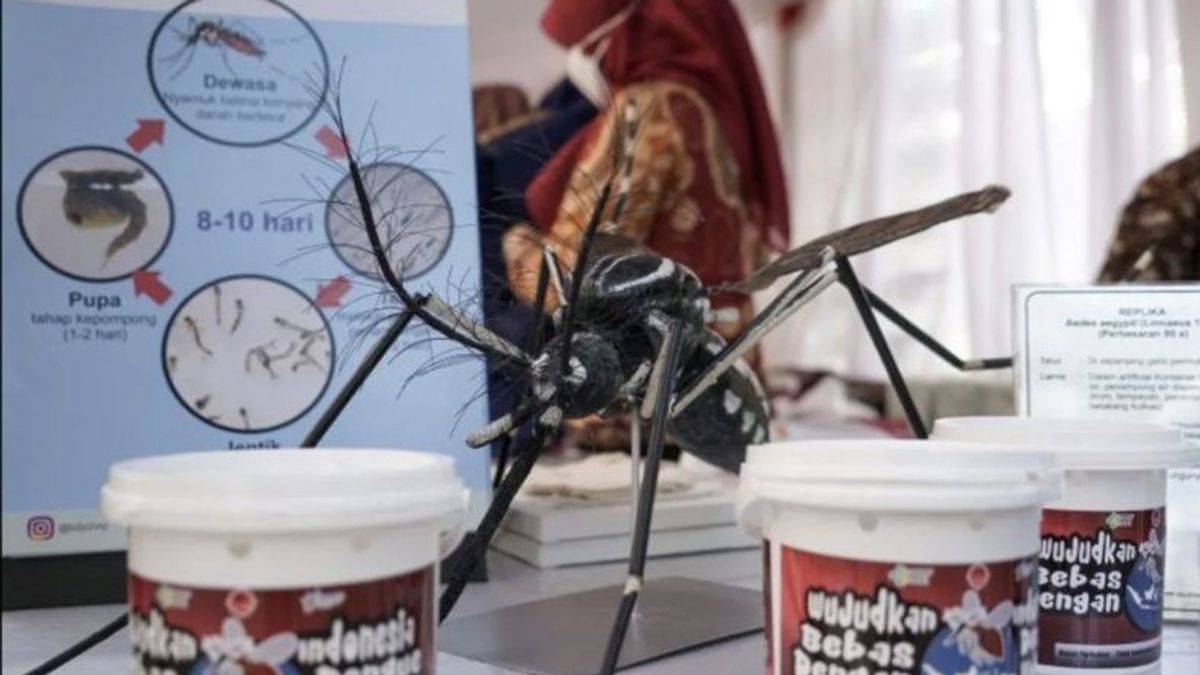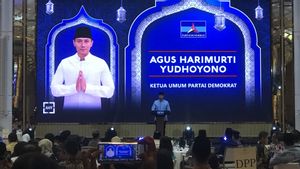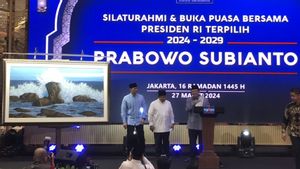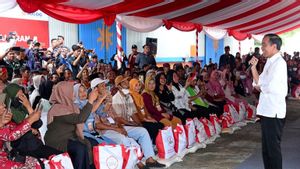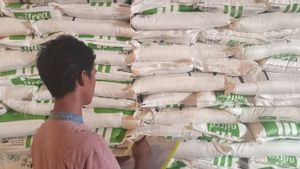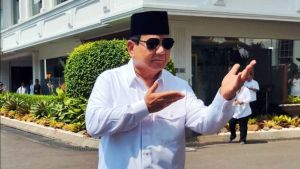JAKARTA - The Ministry of Health (Kemenkes) is preparing the need for Aedes aegypti virus eggs with Wolbachia to test dengue control in Bandung City, West Java, as much as 5.4 million more per week.
The Director General of Disease Prevention and Control of the Indonesian Ministry of Health, Maxi Rein Rondonuwu, said that the need for eggs for mosquitoes with Wolbachia would be sent from the Gajah Mada University insektarium or the Center for Vector Research and Disease Reservoir (B2P2VRP) Salatiga.
"In 2024 in the 10th week, 27,852 cases were reported and 250 deaths were reported. The city of Bandung is the city with the highest dengue cases in Indonesia, reaching 1,301 cases and quite high deaths, seven deaths," he said as quoted by ANTARA, Wednesday, March 27.
In a coordination meeting of Wolbachia technology pilot projects with the Bandung City Government, Monday (18/3), it was conveyed that the need for Wolbachia mosquito eggs based on the land area of Bandung City 129 square kilometers is estimated at 5,410,000 eggs per week.
In order for the distribution of nyambuk with Wolbachia to be effective, said Maxi, 20,782 bucket storage points are needed which are the breeding nests for eggs.
The Ministry of Health will take advantage of satellite imagery to position buckets at the right location by recruiting local people as foster parents for the implementation of the Wolbachia mosquito trial.
According to the guidelines issued by Researcher of the UGM Tropical Medicine Center, the method of releasing Wolbachia mosquitoes is carried out using a bucket containing clean water stored 250 to 300 mosquito eggs with an egg determination rate of around 90 percent. Each bucket is placed at a distance of 75 square meters.
The number of buckets containing mosquito eggs must reach at least 10 percent of the Aedes aegypti population in the area and the distribution is carried out 12 times. One time the spread is assumed to be only 1 percent of the population of mosquitoes.
SEE ALSO:
Gajah Mada University, Tahija Foundation and Monesh University are working together to innovate a dengue-tech mastering program with a Wolbachia mosquito for approximately 10 years.
Wolbachia is a natural, symbionic bacteria commonly found in arthropods, with a mechanism to inhibit the replication of dengue viruses played by Wolbachia.
The results of this study were able to reduce the 77 percent incidence rate (IR) of dengue and reduce the risk of hospitalization by 86 percent.
Based on this consideration, the Ministry of Health adopted Wolbachia technology by issuing Minister of Health Decree No. 1341 of 2022 concerning the Implementation of Wolbachia Technology Project Pilots in five cities, namely Semarang, Bontang, West Jakarta, Kupang, and Bandung City.
The English, Chinese, Japanese, Arabic, and French versions are automatically generated by the AI. So there may still be inaccuracies in translating, please always see Indonesian as our main language. (system supported by DigitalSiber.id)
